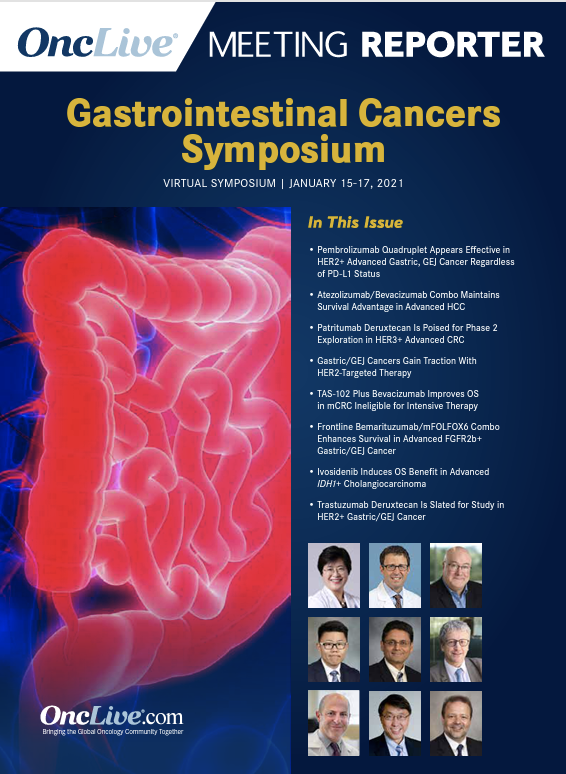Grothey Spotlights the Growing HER2+ Paradigm in GI Cancers
Axel Grothey, MD, discusses the excitement surrounding HER2-directed therapies in gastrointestinal malignancies, the approval of trastuzumab deruxtecan in HER2-positive metastatic gastric/gastroesophageal junction cancer, and the investigational agents patritumab deruxtecan and zanidatamab that are poised to further advance the paradigm.
Welcome to OncLive On Air™! I’m your host today, Jessica Hergert.
OncLive On Air™ is a podcast from OncLive®, which provides oncology professionals with the resources and information they need to provide the best patient care. In both digital and print formats, OncLive covers every angle of oncology practice, from new technology to treatment advances to important regulatory decisions.
In today’s episode, sponsored by Daiichi-Sankyo, we had the pleasure of speaking with Axel Grothey, MD, a medical oncologist and director of Gastrointestinal Cancer Research at West Cancer Center and Research Institute, to discuss HER2-targeted treatment strategies in gastrointestinal (GI) cancers.
Most recently, on January 15, 2021, the FDA approved fam-trastuzumab deruxtecan-nxki (Enhertu) for the treatment of adult patients with locally advanced or metastatic HER2-positive gastric or gastroesophageal junction adenocarcinoma (GEJ) who have received a previous trastuzumab (Herceptin)-based regimen.
The regulatory decision was based on data from the phase 2 DESTINY-Gastric01 trial (NCT04014075), which demonstrated that treatment with the antibody-drug conjugate improvemed overall survival compared with irinotecan or paclitaxel, at 12.5 months versus 8.4 months, respectively, in patients with advanced, HER2-positive gastric or GEJ adenocarcinoma who had progressed following a trastuzumab-based treatment.
In our exclusive interview, Grothey discussed the excitement surrounding HER2-directed therapies in gastrointestinal malignancies, the approval of trastuzumab deruxtecan in HER2-positive metastatic gastric cancer/gastroesophageal junction cancer, and the investigational agents patritumab deruxtecan and zanidatamab that are poised to further advance the paradigm.




